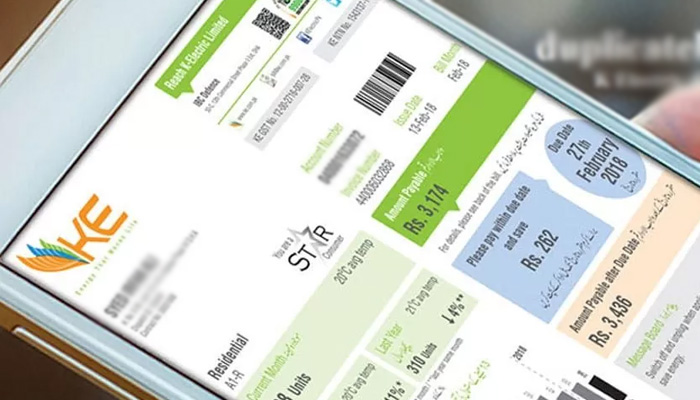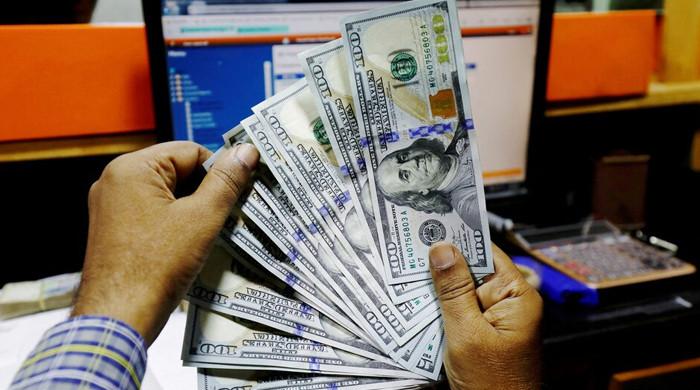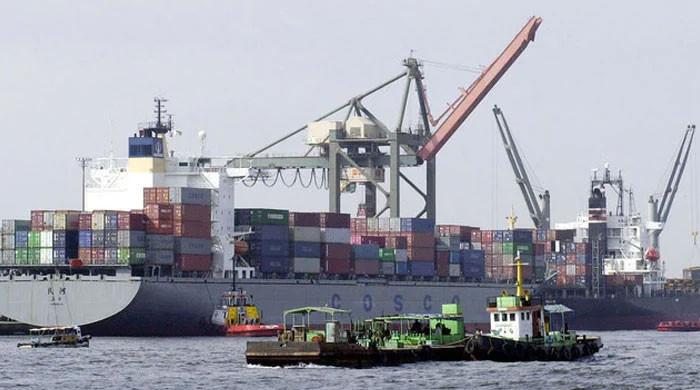K-Electric gets highest federal subsidy of Rs169bn
Instead of captive or low-efficiency plants, the gas should be given to K-Electric, says power utility
October 26, 2023

- KE subsidy is being fulfilled by federal budget.
- Iesco, Lesco and Fesco subsiding other Discos.
- KE says gas supply to captive power plants be stopped.
ISLAMABAD: The federal government is providing the highest subsidy to K-Electric as compared to the state-run Power Distribution Companies (Discos), it emerged Wednesday.
According to the Ministry of Energy (Power Division) statistics, the net required subsidy of K-Electric is Rs169 billion and is being fulfilled by the federal government budget.
Among the Discos, three are Islamabad Electric Supply Company (Iesco), Lahore Electric Supply Company (Lesco) and Faisalabad Electric Supply Company (Fesco), which are subsidising the remaining seven Discos with a total amount of Rs156 billion per annum, Federal Secretary of Power Division Rashid Mahmood Langrial told The News.
The share of Iesco is Rs68 billion, Lesco Rs83 billion and Fesco Rs5 billion as cross-subsidising the other companies (except K-Electric).
The three do not need to take subsidies from the federal government.
Besides, the federal government is also subsidising the consumers of other Discos with a combined subsidy amount of Rs158 billion, a bigger amount than what it subsidises the K-electric with Rs169 billion.
Iesco, for instance, stands out as a self-sufficient entity, generating a cross-subsidy of Rs112 billion, which comfortably covers its Rs44 billion subsidy requirement. Lesco follows suit, generating Rs201 billion as it needs Rs118 billion for subsidies, leaving them financially robust.
Fesco demonstrates similar financial independence, generating Rs91 billion while requiring Rs86 billion in subsidies.
In stark contrast, the other seven distribution companies (Discos) face financial deficits and depend on federal subsidies as well as inter-discos cross-subsidies from Iesco, Lesco and Fesco.
Moreover, the Peshawar Electric Supply Company (Pesco) generates only Rs42 billion in cross-subsidies against a subsidy requirement of Rs77 billion, resulting in a net required subsidy of Rs35 billion.
This financial gap is bridged by Rs17 billion from inter-Discos subsidy transfers and Rs18 billion from the federal government.
Similarly, the Gujranwala Electric Company (Gepco) receives Rs18 billion through inter-Discos subsidy transfers and another Rs18 billion from the federal government.
The Tribal Electric Supply Company (TESCO) requires Rs19 billion subsidy, which is met by Rs10 billion from inter-Discos subsidies and Rs9 billion from the federal government.
Furthermore, the Multan Electric Power Company (Mepco) also demonstrates a reliance on subsidies, needing Rs86 billion in total, with Rs43 billion coming from inter-Discos subsidies and Rs43 billion from the federal government while the Quetta Electric Supply Company (Qesco) has subsidy requirement of Rs44 billion, with Rs22 billion each provided by inter-Discos subsidies and the federal government.
The Sukkur Electric Supply Company (Secpco) requires Rs25 billion in subsidies, with Rs12 billion sourced from inter-Discos subsidy and Rs13 billion from the federal government.
Meanwhile, Hyderabad Electric Supply Company (Hesco) has a subsidy requirement of Rs69 billion, with the federal government contributing Rs35 billion and the remaining Rs34 billion coming from inter-Discos cross-subsidy.
KE’s response
In response to Langrial's statement, the power utility has clarified that the amount of subsidy goes back to the government institutions against the purchase of costly fuel.
"If KE gets the 276 mmcfd gas as approved by the ECC there wouldn't be a need for any subsidy. Instead of captive or low-efficiency plants, the gas should be given to K-Electric."
Natural gas supply to KE is currently suspended, it added.











